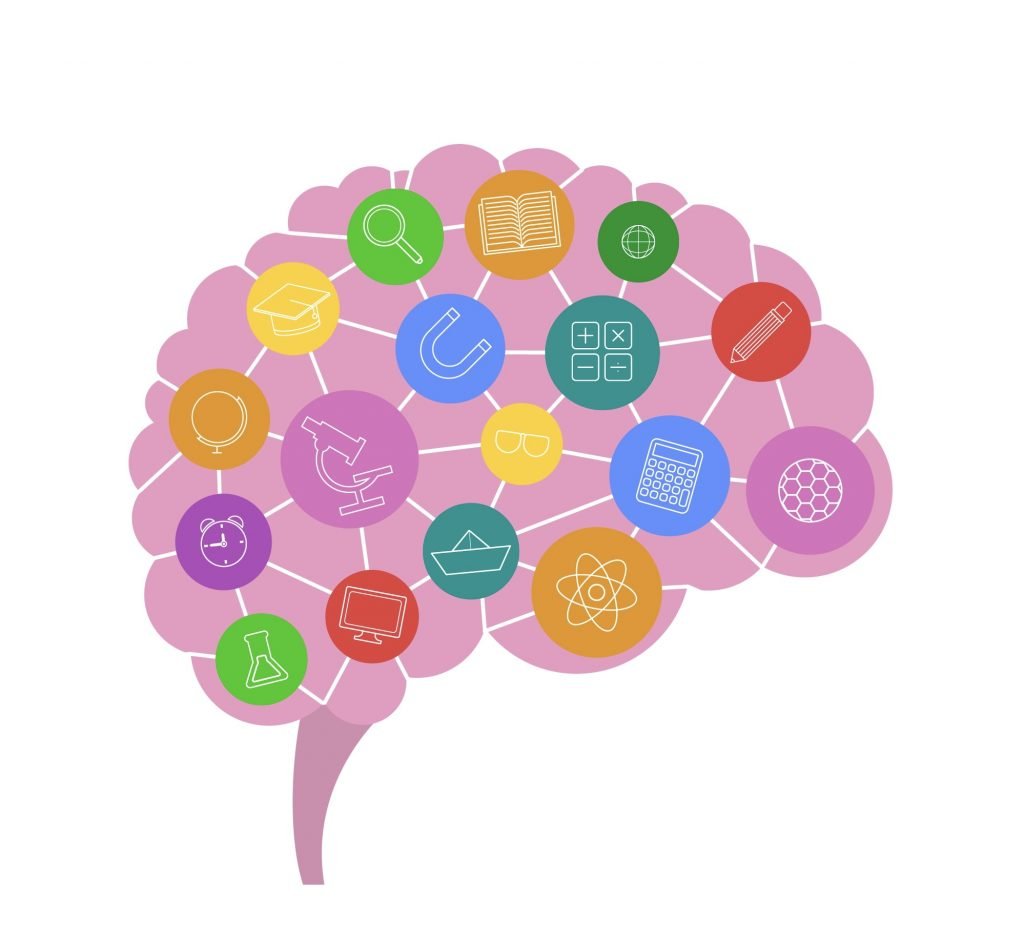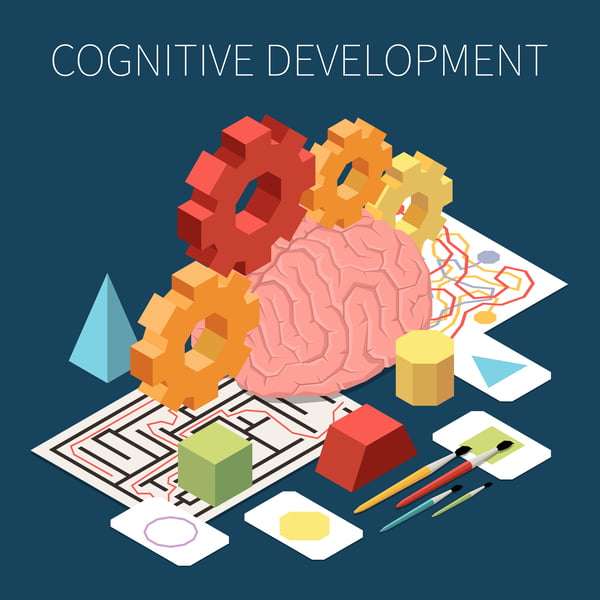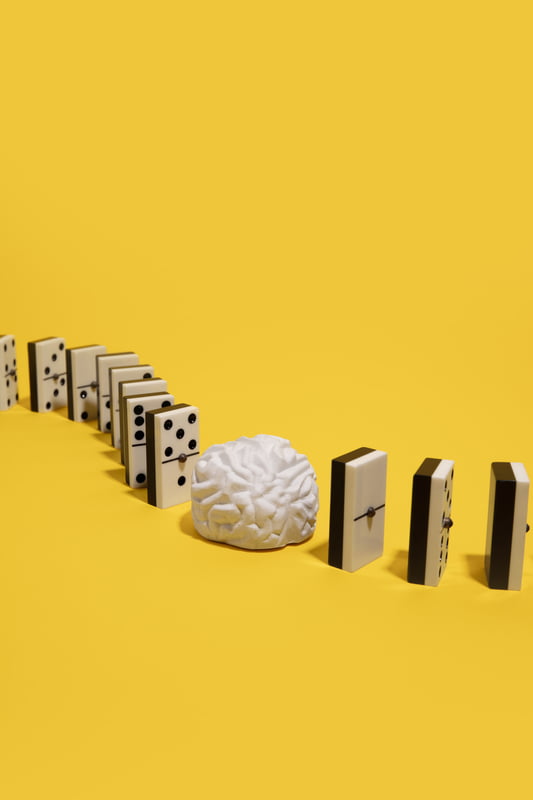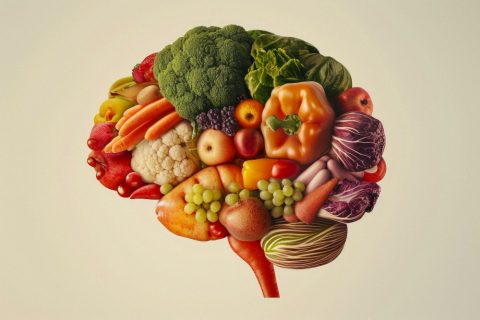Did you know that simple brain workouts may boost your memory and concentration? Memory lapses are frustrating, but here’s a secret weapon you may not be aware of: your brain! Exercise benefits our minds just as much as it does our bodies.
Forget where you left your keys? Do you find it difficult to remember names during introductions? We have all been there! But what if you could boost your memory while keeping your intellect sharp? This guide unlocks the realm of brain training, providing a wealth of exercises for everyone. Whether you’re a student juggling exams, a professional looking for peak mental clarity, or someone who values cognitive health, this toolset will help you sharpen your memory and reach your brain’s maximum potential.
Brain Exercises for Senior Citizens
Our brains naturally change with age. However, this does not mean that cognitive deterioration is inevitable! Participating in brain exercises for memory designed especially for seniors can greatly improve memory and mental clarity.
Age-Appropriate Workouts:
- Crossword Puzzles and Word Games: These classic activities stimulate vocabulary, spelling, and critical thinking skills.
- Jigsaw Puzzles: Putting together puzzles strengthens visual-spatial reasoning and memory recall.
- Learning a New Skill: Take up painting, knitting, or even a new language! Mastering new skills challenges your brain in exciting ways.
- Social Activities: Engaging in conversations and participating in social gatherings keeps your mind active and fosters cognitive well-being.

10 Easy Ways to Sharpen Your Brain
The key to boosting memory lies in incorporating brain-stimulating activities into your daily routine. Here are some simple yet effective exercises:
Daily Brain-Boosting Habits:
- Switch Up Your Routine: Break free from autopilot! Try taking a different route to work, brushing your teeth with your non-dominant hand, or reading a book in a new genre.
- Practice Mindfulness: Meditation and mindful breathing exercises enhance focus and improve overall cognitive function.
- Play Brain Games: Mobile apps and online platforms offer a plethora of brain-training games that are both fun and stimulating.
- Learn Something New Every Day: Whether it’s a historical fact, a new vocabulary word, or a fun trick, feed your brain with fresh information.
Memory-Boosting Exercises
Science has identified specific exercises that can significantly enhance your ability to remember information. Let’s explore some memory powerhouses:
Improving Memory Retention:
- The Memory Palace Technique: Imagine a familiar location with distinct landmarks. Assign information you want to remember to these landmarks, creating a mental map for recall.
- The Method of Loci: Similar to the memory palace technique, associate information with specific locations along a familiar route.
- Spaced Repetition: Review information at increasing intervals to solidify it in your long-term memory. Flashcard apps can be helpful tools for spaced repetition.
Fun Brain Games for Memory Enhancement
Learning doesn’t have to feel like a chore! Here are some engaging games that keep your brain sharp while having a blast:
Games for Brain Fitness:
- Sudoku: This classic puzzle challenges your logical reasoning and problem-solving skills while boosting memory recall.
- Chess and Checkers: These strategic games enhance focus, planning abilities, and critical thinking – all crucial for memory function.
- Memory Games: Matching cards or remembering sequences of objects are fun ways to test and improve your short-term memory.
- Board Games and Trivia Nights: Gather friends and family for a night of brain-stimulating games that promote cognitive well-being.
Strategies to Improve Memory
Do you feel as though your memory has diminished? Rest easy—help is on the way! Your memory for information can be greatly enhanced by implementing certain tactics into your everyday practice. We’ll look at ways to make your memory stronger by employing mnemonic devices, memory elaboration, and active recall strategies.
Enhancing Memory Capacity:
- Active Recall: Don’t just passively read information. Test yourself by trying to recall what you’ve learned without referring to your notes.
- Elaboration: Instead of simply memorizing facts, connect them to existing knowledge. Create stories or mental pictures to solidify information in your memory.
- Mnemonic Devices: Use acronyms, rhymes, or other memory aids to encode information in a way that’s easier to recall.
Unlocking Dormant Brain Regions
Untapped potential lies within your brain, just waiting to be discovered. Exercises that target underutilised brain regions can improve general brain health and cognitive function.
Let’s explore how to activate Brain’s full Potential:
- Dual N-Back Task: This online exercise challenges your working memory by presenting visual or auditory stimuli and requiring you to identify patterns.
- Learning a New Instrument: Playing a musical instrument engages multiple brain regions simultaneously, promoting cognitive flexibility and memory function.
- Juggling: This activity requires coordination, focus, and spatial reasoning, stimulating various brain areas and enhancing overall cognitive function.

Enhancing Memory and Brain Strength
- Exercise Regularly: Physical activity increases blood flow to the brain, delivering essential oxygen and nutrients that support cognitive function. Aim for at least 30 minutes of moderate-intensity exercise most days of the week.
- Eat a Brain-Healthy Diet: Nourish your brain with foods rich in omega-3 fatty acids, antioxidants, and vitamins. Fruits, vegetables, whole grains, and lean protein are memory-boosting powerhouses.
- Prioritize Sleep: During sleep, your brain consolidates memories and flushes out toxins. Aim for 7-8 hours of quality sleep each night.
- Manage Stress: Chronic stress can negatively impact memory function. Practice relaxation techniques like deep breathing, meditation, or yoga to manage stress and support cognitive health.
Best Brain Exercises
While there are advantages to all brain workouts, some are more beneficial than others. This section reveals clinically validated techniques to enhance your memory and cognitive abilities.
Effective brain exercises for memory:
- Aerobic Exercise: Studies show that activities like brisk walking, swimming, or cycling can improve memory function and reduce the risk of age-related cognitive decline.
- Learning a New Language: Immersing yourself in a new language challenges your brain in a comprehensive way, enhancing memory, focus, and multitasking skills.
- Mindfulness Meditation: Regularly practising mindfulness meditation improves focus, reduces stress, and strengthens memory pathways in the brain.
Techniques for Fast Memorization
Are you feeling overpowered by the sheer volume of knowledge you have to retain? Be at ease!
We’ll go over techniques like chunking, the PQRST approach, and the Feynman Technique to make you an expert at remembering information and prepared to take on any learning task.
Tips for Efficient Learning:
Chunking: Break big information into smaller bits—it’s easier to remember that way.
PQRST Method: Preview, Question, Read, Summarise, Test. It’s active learning that boosts your memory.
Feynman Technique: Teach what you’re learning to someone else. It locks in your understanding and helps you remember better.
Remember these strategies when facing fast-paced learning challenges. They simplify complex information and empower efficient memorization, ensuring you’re equipped to tackle any memory task with confidence.
Addressing Memory Challenges
Although memory lapses are common in life, it is imperative to consult a healthcare provider when they start to interfere with everyday tasks.
In order to improve memory and foster mental clarity, take into consideration the following all-encompassing strategies:
1. Manage Underlying Conditions: Certain medical conditions such as sleep disorders, thyroid problems, vitamin deficiencies, or neurological issues can impact memory. Early detection and treatment of these underlying conditions are crucial for preventing further cognitive decline.
2. Brain-Training Apps: Explore a variety of brain-training apps designed to target specific cognitive skills and memory challenges. These apps offer exercises and games that can help improve memory, attention, and overall cognitive function.
Impact of Anxiety and Sleep on Memory
Similar to computers, our brains work best when they are well-rested and free from outside distractions. That’s why memory function is greatly impacted by our mental and emotional health.
Here’s a closer look at two key factors:
- Anxiety: When we’re constantly worried or stressed, our brains struggle to focus and consolidate memories. Imagine trying to save a file on a cluttered desktop – it’s difficult to find the right space and keep things organized. Chronic anxiety can be like that for your brain, making it hard to form and retain new memories.
- Sleep: During sleep, our brains process and consolidate information from the day, turning short-term memories into long-term ones. Think of sleep as filing away important documents – it allows your brain to organize and store information for future recall. When we don’t get enough quality sleep, this process is disrupted, leading to memory problems.
Strategies for a Sharper Mind:
To combat the negative effects of anxiety and sleep deprivation on memory, we can focus on:
- Managing Anxiety: Relaxation techniques like deep breathing and meditation can help calm the mind and reduce anxiety. Additionally, cognitive-behavioral therapy (CBT) is a form of therapy that teaches you how to identify and change negative thought patterns that contribute to anxiety.
- Improving Sleep Quality: Developing a consistent sleep schedule, practicing good sleep hygiene habits (like avoiding screens before bed and creating a relaxing bedtime routine), and getting enough restful sleep each night can significantly improve memory function.
By addressing these factors, we can create a more optimal environment for memory formation and recall, leading to a sharper and more resilient mind.

Reversing Memory Loss
Understanding Memory Decline:
While many worry about memory loss as they age, it’s not inevitable. Brain injury can heal with the help of therapy and rehabilitation; it’s not necessarily permanent. Lifestyle decisions, such as mental exercise and social interaction, are critical in preserving cognitive abilities as we age.
Encouraging Brain Health: Preventing or correcting memory loss requires aggressively maintaining brain health.
Here are some actionable tips:
- Stay Physically Active: Regular exercise not only benefits the body but also promotes brain health. Aim for at least 150 minutes of moderate aerobic activity per week, such as brisk walking or cycling.
- Challenge Your Mind: Engage in activities that stimulate your brain, such as puzzles, learning a new language, or playing musical instruments. These activities promote neuroplasticity, enhancing cognitive function and memory.
- Maintain a Healthy Diet: Eat a balanced diet rich in fruits, vegetables, whole grains, lean proteins, and healthy fats. Omega-3 fatty acids, found in fish like salmon and walnuts, are particularly beneficial for brain health.
- Get Quality Sleep: Prioritise good sleep hygiene to support cognitive function. Aim for 7-9 hours of quality sleep each night, and establish a consistent sleep schedule.
- Stay Socially Connected: Maintain strong social connections with friends, family, and community members. Social interaction stimulates the brain and reduces the risk of cognitive decline.
By incorporating these strategies into your lifestyle, you can take proactive steps to preserve and even enhance your cognitive health, reversing or preventing memory loss as you age.
Here are some final takeaways to empower your journey towards a sharper mind:
- Find activities you enjoy: Brain training should be engaging! Choose exercises you find fun and stimulating to make them a sustainable part of your life.
- Challenge yourself progressively: As your brain adapts, gradually increase the difficulty of exercises to keep pushing your cognitive boundaries.
- Embrace a holistic approach: A healthy lifestyle is vital for optimal brain function. Combine brain exercises for improved memory with a nutritious diet, regular exercise, and quality sleep for maximum cognitive benefit.
- Celebrate your progress: Track your improvements and acknowledge your achievements. A sense of accomplishment will keep you motivated on your journey to cognitive enhancement.
By making brain health a priority and incorporating these strategies into your life, you can unlock your brain’s full potential and empower yourself to thrive well into the future.
Remember, a healthy brain is a happy brain! By incorporating these activities for brain exercises for improved memory and lifestyle modifications into your routine, you can empower yourself to achieve optimal cognitive function, enhance memory retention, and sharpen your mind for years to come.
Frequently Asked Questions
A: Classic brain teasers like crossword puzzles and jigsaw puzzles are great! Learning a new skill, social activities, and staying mentally stimulated are all beneficial for the cognitive health of seniors.
A: Techniques like the memory palace and spaced repetition can strengthen memory recall. Active recall (testing yourself) and using mnemonic devices (memory aids) are also effective strategies.
A: Challenge yourself with new activities! Learning a new language, juggling, or trying the Dual N-Back task online can stimulate underused brain regions and enhance overall cognitive function.
A: Incorporate memory-boosting activities into your daily routine. Engage in brain games, actively recall information, and connect new knowledge to existing memories for better retention.
A: Yes! During sleep, your brain consolidates memories. Chronic sleep deprivation disrupts this process, leading to memory problems. Aim for 7-8 hours of quality sleep nightly.
A. While some memory decline is natural with age, there are steps to slow it down! Regularly challenge your brain, stay socially active, and prioritize healthy habits like sleep and exercise. Early intervention for underlying medical conditions can also help.
A: Focus on a brain-healthy diet rich in omega-3 fatty acids, antioxidants, and vitamins. Fruits, vegetables, whole grains, and lean protein are memory powerhouses.
A: There’s no single “superfood” for memory. Aim for a balanced diet rich in the nutrients mentioned above.
A: Staying hydrated is crucial! Water is essential for optimal brain function, including memory.
A: Combine brain exercises with a healthy lifestyle. Regular exercise, quality sleep, stress management, and a nutritious diet all contribute to sharper memory and cognitive function.
A: Almonds contain healthy fats and vitamins that support brain health, but they won’t directly boost IQ.
A moderate handful (around 2-3 almonds) is a good daily serving to promote overall health, including brain function.




